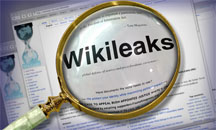Minister of Foreign Affairs Carolyn Rodrigues-Birkett says this country has no concerns at the moment about Venezuela invading Guyana because bilateral relations have been solid within recent years.
The minister played down two WikiLeaks cables released on Friday which said that former Brazilian president Luis Inacio Lula da Silva and other senior officials were concerned that Venezuela’s Hugo Chavez would attempt to seize Essequibo by force.
“Our relations with Venezuela are good… relations have been good for some time now. We don’t have any such concerns right now,” Rodrigues-Birkett told Stabroek News yesterday.
But former foreign minister of Guyana, Rashleigh Jackson, in an invited comment, observed that while Guyana is building better relations with Venezuela, this country needs to be prepared mentally and physically for a possible attack from its western neighbour.
The WikiLeaks cables dated January 2008 are the first disclosure that there were concerns in Brasilia about Chavez’s intentions, and it is unclear what might have led to the Brazilian assessment, as relations were mostly stable between this country and Venezuela in 2006-2007. However, Venezuela military forces had destroyed two dredges belonging to Guyanese nationals in this country’s waters two months before the cables were dispatched.

“I am not saying that Venezuela is going to attack us; I am saying that we ought to be prepared in the event that they do… strategies need to be devised as to how we deal with it,” Jackson said. He believes that this government cannot take the issue of an invasion off the table, and/or assume that Venezuela had dropped the issue.
Jackson went on to say there is a possibility that Venezuela could again seek to take military action in the Essequibo, adding this country must have a counter-strategy. He explained that the strategy could mean having the Guyana Defence Force on alert in the area, in addition to swiftly mobilizing support within the international community, particularly the UN Security Council.
For AFC Leader Raphael Trotman the cables confirmed what many people have suspected for some time, which is that Brazil has an interest in the border controversy between Guyana and Vene-zuela. He said that while relations have improved, there is an inherent danger because of the controversy.
According to Trotman, successive governments here have always kept a close eye on Venezuela and what is happening in that country. He recalled sitting on a border National Security Committee back in 2001 which, “paid particular interest to Venezuela.” He noted that the committee had also looked at some reports which suggested some belligerence towards Guyana was possible as the economic and social situation in Venezuela deteriorated.
The committee he mentioned was chaired by Speaker of the House Ralph Ramkarran and co-chaired by Brigadier (rtd) David Granger. It also included Cabinet Secretary Dr Roger Luncheon; former foreign minister Clement Rohee and former home minister Ronald Gajraj, among others.
“The WikiLeaks cables confirmed that the incursion by Venezuela in 2007 was no benign threat, and it is good to know that our neighbours were paying close attention at the time,” Trotman said. Additionally, he said everyone would ultimately like to see better relations between Guyana and Venezuela as well as an end to the border controversy.
And reacting to the WikiLeaks cables, PNCR MP Aubrey Norton said this country had reason to be concerned at the time of the 2007 incident in the Cuyuni River because the territorial integrity of Guyana was violated, but that “we need not worry now”.
Norton posited that Guyana needs to focus on building stronger relations with Venezuela, among other Latin American partners. He observed that the relationship between Guyana and Venezuela has improved within recent years, stressing that government needs to continue working on this. The climate which existed in 2007 no longer exists, Norton said, adding that Guyana has to continue deepening relations with its neighbours and the wider world.
The two WikiLeaks cables were dispatched from Brazil by US diplomats to Washington and copied to the US Embassy in Georgetown. Both were dated January 2008. One was dispatched by the US Consul Thomas White in Sao Paulo, Brazil on January 15, 2008 and the other by US Ambassador to Brazil Clifford M Sobel on January 31, 2008.
White’s cable was based on a conversation that he had had with former Minister of Finance Antonio Delfim Netto on January 7, 2008. Netto was then a consultant and the two discussed Brazilian politics and relations between Brasilia and Caracas. It was in this cable that the concerns about Venezuela’s designs on Essequibo were starkly stated.
According to White, Netto said “Lula is worried about Venezuela’s ‘serious’ border problems with its neighbours, particularly Colombia and Guyana. Chavez has his sights on ‘one third’ of Guyana’s territory, and if Venezuela were to invade Guyana, Caracas would likely militarize all of Venezuela’s south, antagonizing the indigenous populations there. (Comment: Former President and sitting Senator Jose Sarney has expressed similar concerns with regard to Chavez’s designs on Guyana, per reftels D and E. End comment.) Delfim said this will have an impact on Brazil because the territories of at least one tribe, the Yanomami Indians spill over the Venezuela-Brazil border. Delfim believes that, should Venezuela invade Guyana, the Yanomamis will declare independence, forcing Brazil to get involved in a Venezuela-Guyana war.”





